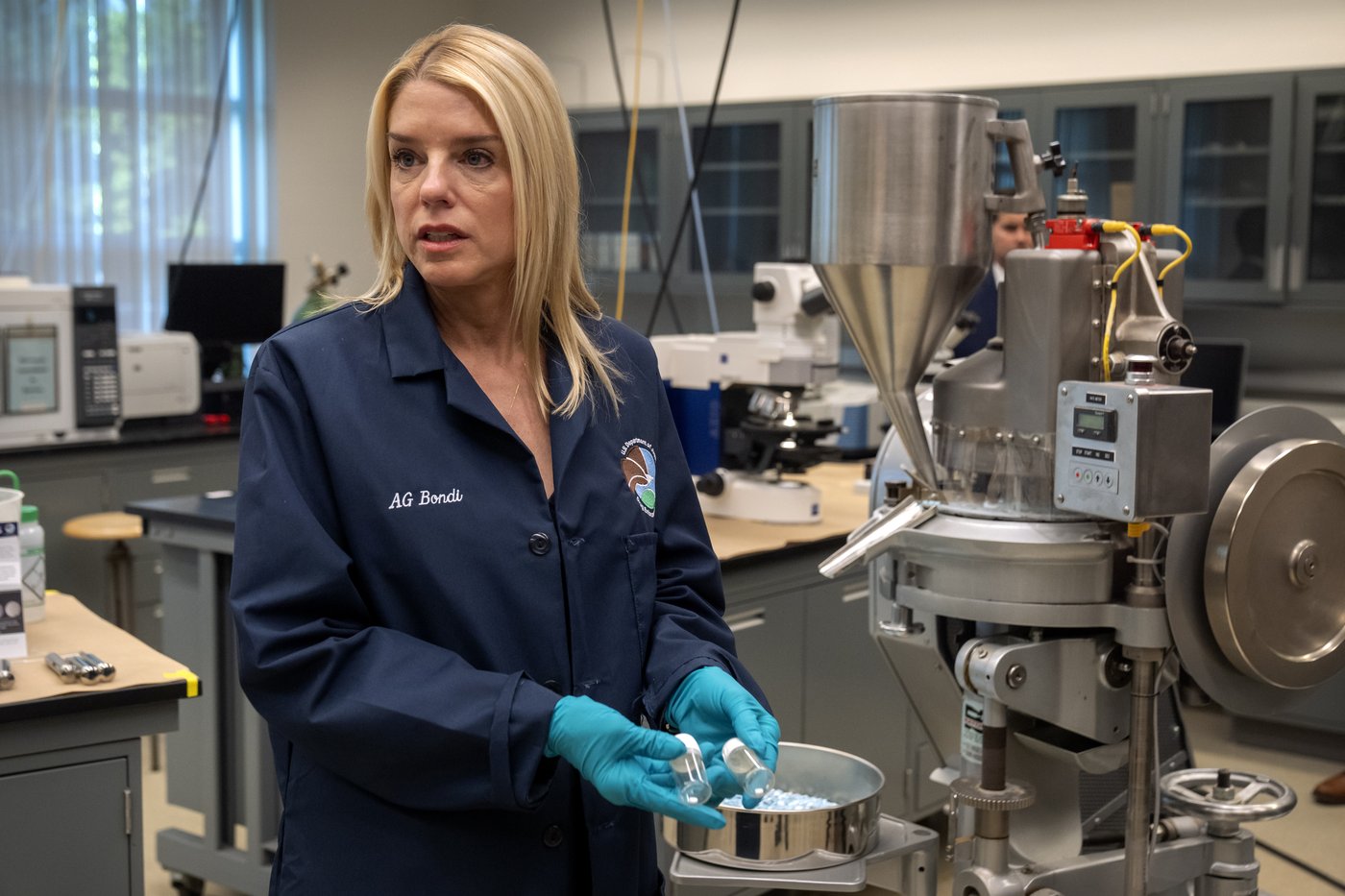Elevate your local knowledge
Sign up for the iNFOnews newsletter today!

WASHINGTON (AP) — A key player in the U.S. government’s battle to combat the flow of deadly fentanyl is a team at a little-known research lab in northern Virginia that’s working to analyze seized narcotics and gather intelligence to find ways to stop the supply.
Attorney General Pam Bondi traveled to the Drug Enforcement Administration lab on Tuesday to meet with chemists who are tasked with identifying the ever-evolving tactics employed by cartels to manufacture drugs flowing across the southern border.
“We are trying to reverse engineer what the cartels are doing at any given time,” senior DEA research chemist David Guthrie told Bondi. “Whenever something new shows up, it’s our job to figure out how that got in there. Did they change the recipe? Are they using a new compound?”
Bondi donned a blue DEA lab coat as she toured the facility in an effort to put a spotlight on a key Trump administration priority to combat the illicit flow of fentanyl that’s blamed for tens of thousands of overdose deaths every year.
The chemists showed Bondi the ease with which cartels are able to produce fentanyl, and detailed how their team is working to identify new compounds to help law enforcement keep illicit drugs off the street.

“That’s how easy it is to kill Americans,” Bondi said after watching blue pills shoot out of a pill press seized by investigators that’s capable of producing 15,000 pills an hour.
The Trump administration has sought to increase pressure on violent drug cartels and criminal gangs, charging an alleged high-ranking member of Tren de Aragua in Colombia with terrorism offenses earlier this month.
The White House has linked the fentanyl issue to his tariffs, saying the president is working to hold Mexico, Canada, and China “accountable to their promises of halting illegal immigration and stopping poisonous fentanyl and other drugs from flowing into our country.”




___
Want to share your thoughts, add context, or connect with others in your community?
You must be logged in to post a comment.